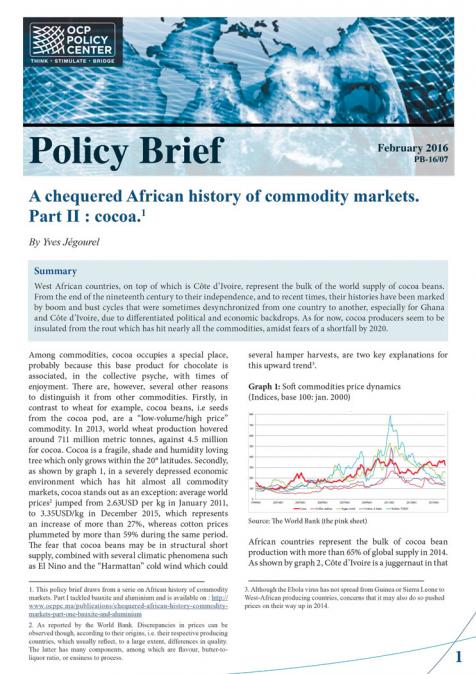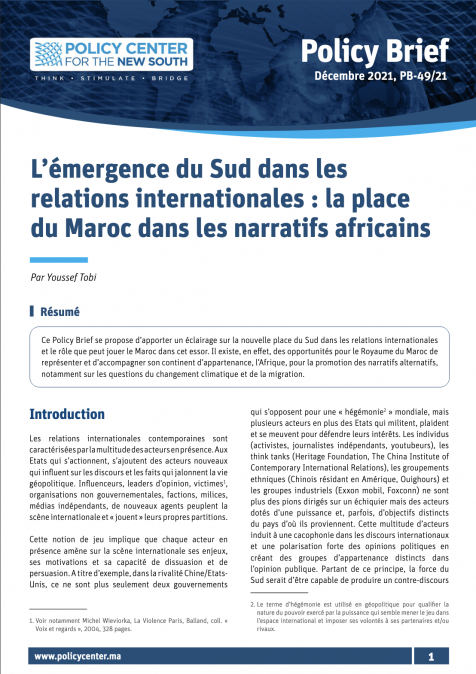Publications /
Policy Brief
Policy Brief
A chequered African history of commodity markets. Part II: cocoa
February 16, 2016
West African countries, on top of which is Côte d’Ivoire, represent the bulk of the world supply of cocoa beans. From the end of the nineteenth century to their independence, and to recent times, their histories have been marked by boom and bust cycles that were sometimes desynchronized from one country to another, especially for Ghana and Côte d’Ivoire, due to differentiated political and economic backdrops. As for now, cocoa producers seem to be insulated from the rout which has hit nearly all the commodities, amidst fears of a shortfall by 2020.







